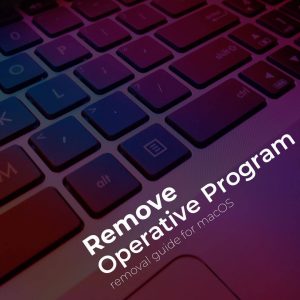Here you can find out what OperativeProgram and is why it is recommendable to delete it from the affected system and browser.
OperativeProgram Mac Adware
The program OperativeProgram is categorized as an adware or a potentially unwanted program. Since it is developed to be compatible with macOS, it affects Mac devices. You probably don’t want this app on your Mac. So the question is how did it land on the system? As a phony software, OperativeProgram does not inform people about its installation process. The methods that are spreading it aim to hide its presence so that people can install it without noticing.
Once started on a Mac, OperativeProgram alters web browsers settings aiming to become able to generate intrusive ads. All ad clicks will generate revenue for the program’s owners. Unfortunately, unexpected redirects to suspicious websites may interrupt your browsing to present you with suspicious offers. The program may also act as a browser hijacker as well. In this case, it will replace the browser’s homepage, new tab page, and default search engine with a hoax search engine.
It is highly recommendable that you remove OperativeProgram adware from the affected Mac as it lowers system security and endangers online privacy.

OperativeProgram Adware Summary
| Name | OperativeProgram / Operative Program |
| Type | Adware, PUP |
| Short Description | A questionable application that appears in the Applications list on your Mac without you remember installing it. |
| Symptoms | Main browser settings are altered. Sensitive data is obtained. Lots of deceptive ads flood browsing sessions and slow down browser performance. |
| Distribution Method | Freeware Installations, Bundled Packages, Counterfeit Software Updates |
| Detection Tool |
See If Your System Has Been Affected by malware
Download
Malware Removal Tool
|
| User Experience | Join Our Forum to Discuss OperativeProgram Adware. |
OperativeProgram Mac Adware – Spread and Impact
Аnti-malware programs define OperativeProgram as a potentially unwanted program. It may act both as adware and browser hijacker. Adware is a program that will modify browser settings in order to deliver invasive sponsored content. Browser hijacker, in turn, alters main browser preferences like homepage, new tab URL, and default search engine.
Usually, apps like OperativeProgram get installed on Mac machines when users are installing another desired app.
Lots of supposedly useful apps contain extras in their installers. Since the majority of people install apps by simply following the default installation steps, added extras stay away from their attention. Due to the fact, these extras tend to remain hidden in the Advanced/Custom configuration step, people get tricked into running them on their machines.
The main purpose of adware like OperativeProgram is to access installed browsers, start presenting sponsored content and generate revenue from clicks on ads.
All affected browsers may be inundated with lots of ads of all types – pop-ups, pop-unders, banners, in-text links, images, videos, fake notification windows, etc. Since these ads may load on every website you visit, your browser could become sluggish or completely unresponsive sometimes. Pretty annoying, right?
Web browsers that may be affected by OperativeProgram are Google Chrome, Safari, Mozilla Firefox, and Opera. Changes to the homepages, new tabs and default search engines may be applied as well.
Affected browsers may be set to redirect to hoax search engines, bogus websites and phishing pages. Google may start redirecting to modified versions of legitimate search engines like Bing and also Yahoo.
Yet another issue OperativeProgram may cause is unsolicited data collection. The app may drop and activate specific tracking technologies. These technologies are may be set to collect certain data that defines your online browsing. The adware will transfer obtained data to remote servers.
Based on this data, operators of unwanted programs may launch targeted advertising campaigns hoping that you will be more prone to click ads.
All issues that occur as a result of having OperativeProgram on your Mac can be prevented with the completion of a few removal steps.
In the following detailed removal guide, you will find out how to get rid of all harmful files installed by any undesired programs and how to restore browser settings.

How to Remove OperativeProgram Adware on Mac
In order to remove OperativeProgram adware along with all associated files installed on the system, you should follow several removal steps. The guide below reveals all removal steps in their precise order.
You could follow either manual or automatic removal steps. In order to fully get rid of all present undesired programs and improve macOS security, we recommend that you combine the steps.
In case you have further questions or need additional help with the removal process, don’t hesitate to leave a comment. We will be glad to get in touch with you.
Steps to Prepare Before Removal:
Before starting to follow the steps below, be advised that you should first do the following preparations:
- Backup your files in case the worst happens.
- Make sure to have a device with these instructions on standy.
- Arm yourself with patience.
- 1. Scan for Mac Malware
- 2. Uninstall Risky Apps
- 3. Clean Your Browsers
Step 1: Scan for and remove OperativeProgram Adware files from your Mac
When you are facing problems on your Mac as a result of unwanted scripts and programs such as OperativeProgram Adware, the recommended way of eliminating the threat is by using an anti-malware program. SpyHunter for Mac offers advanced security features along with other modules that will improve your Mac’s security and protect it in the future.
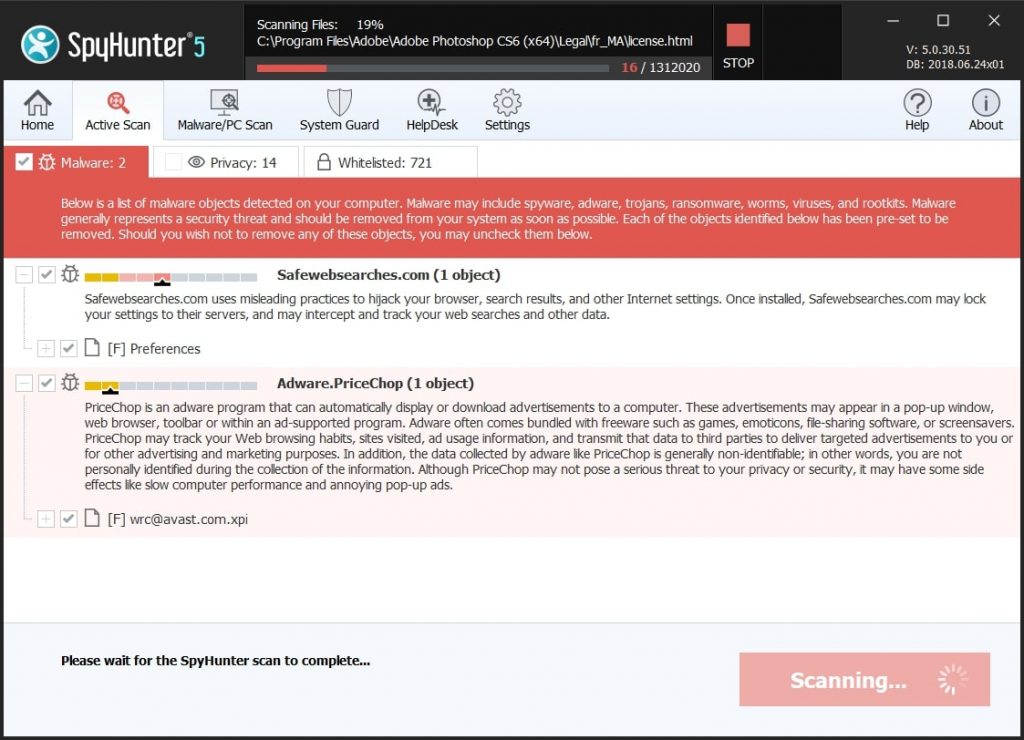
Quick and Easy Mac Malware Video Removal Guide
Bonus Step: How to Make Your Mac Run Faster?
Mac machines maintain probably the fastest operating system out there. Still, Macs do become slow and sluggish sometimes. The video guide below examines all of the possible problems that may lead to your Mac being slower than usual as well as all of the steps that can help you to speed up your Mac.
Step 2: Uninstall OperativeProgram Adware and remove related files and objects
1. Hit the ⇧+⌘+U keys to open Utilities. Another way is to click on “Go” and then click “Utilities”, like the image below shows:
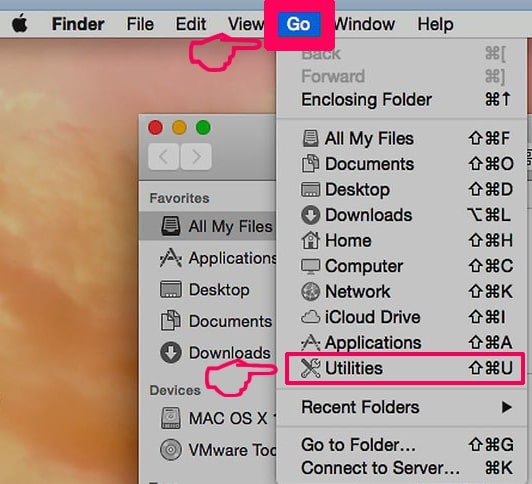
2. Find Activity Monitor and double-click it:
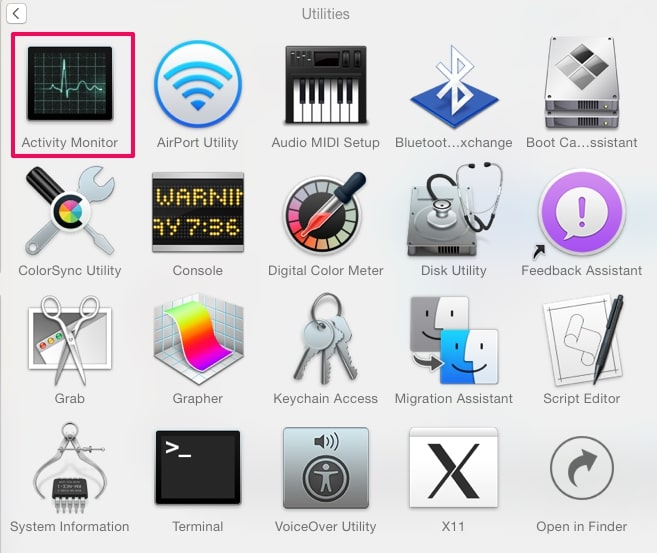
3. In the Activity Monitor look for any suspicious processes, belonging or related to OperativeProgram Adware:
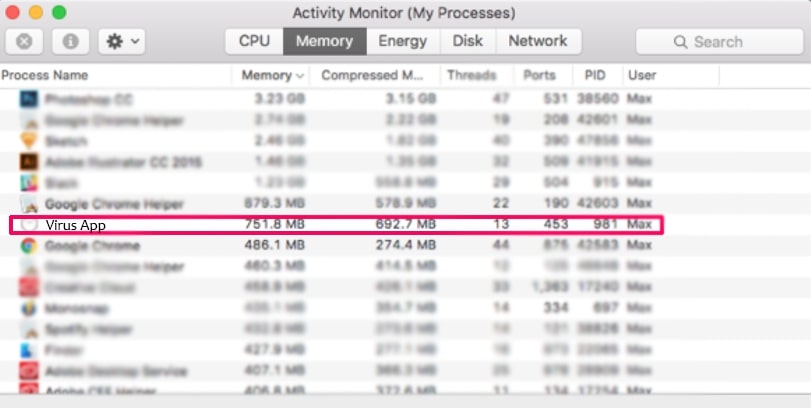
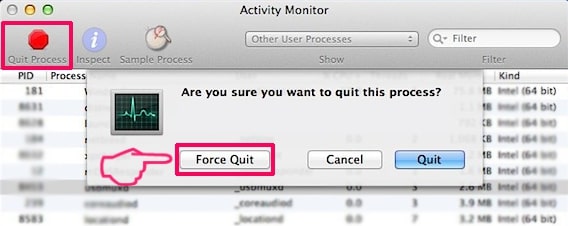
4. Click on the "Go" button again, but this time select Applications. Another way is with the ⇧+⌘+A buttons.
5. In the Applications menu, look for any suspicious app or an app with a name, similar or identical to OperativeProgram Adware. If you find it, right-click on the app and select “Move to Trash”.
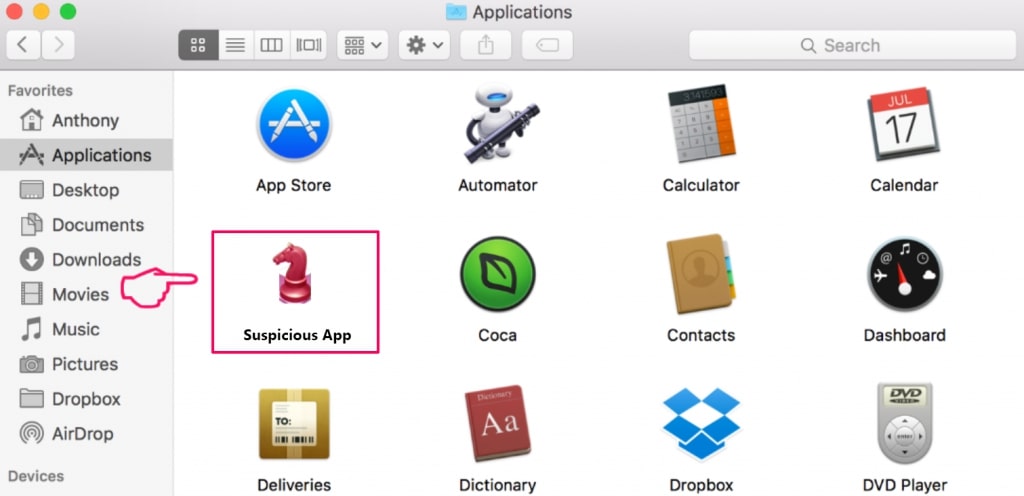
6. Select Accounts, after which click on the Login Items preference. Your Mac will then show you a list of items that start automatically when you log in. Look for any suspicious apps identical or similar to OperativeProgram Adware. Check the app you want to stop from running automatically and then select on the Minus (“-“) icon to hide it.
7. Remove any leftover files that might be related to this threat manually by following the sub-steps below:
- Go to Finder.
- In the search bar type the name of the app that you want to remove.
- Above the search bar change the two drop down menus to “System Files” and “Are Included” so that you can see all of the files associated with the application you want to remove. Bear in mind that some of the files may not be related to the app so be very careful which files you delete.
- If all of the files are related, hold the ⌘+A buttons to select them and then drive them to “Trash”.
In case you cannot remove OperativeProgram Adware via Step 1 above:
In case you cannot find the virus files and objects in your Applications or other places we have shown above, you can manually look for them in the Libraries of your Mac. But before doing this, please read the disclaimer below:
1. Click on "Go" and Then "Go to Folder" as shown underneath:
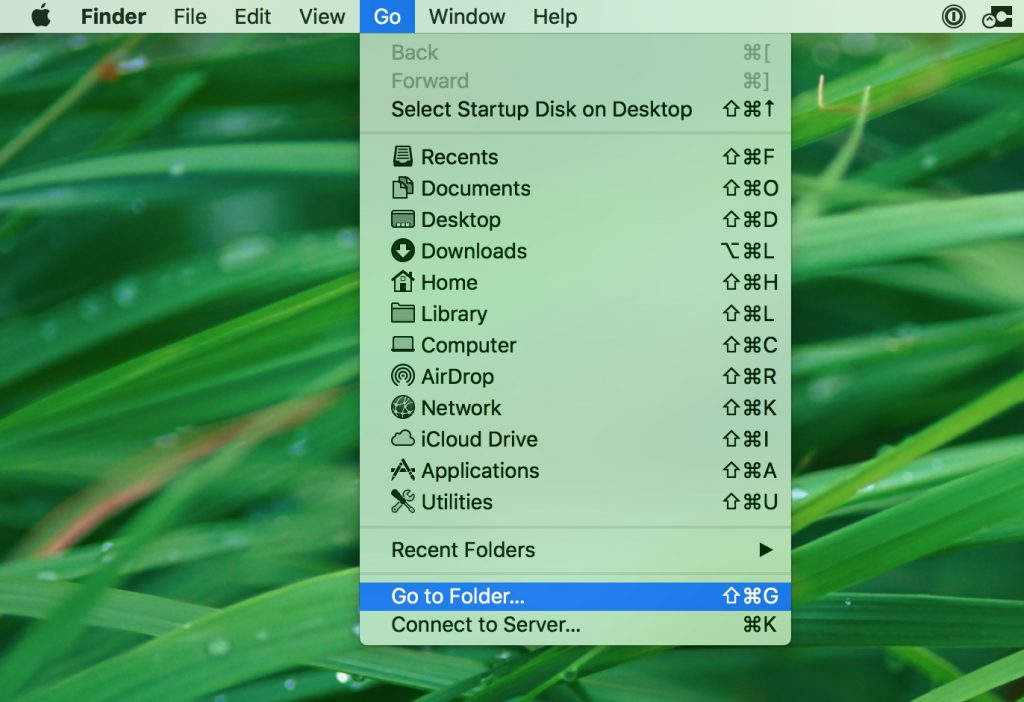
2. Type in "/Library/LauchAgents/" and click Ok:
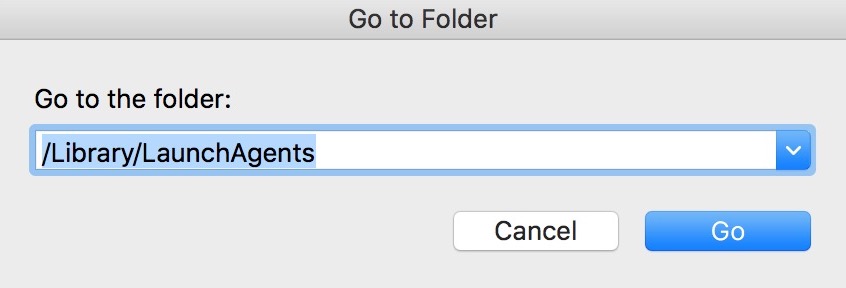
3. Delete all of the virus files that have similar or the same name as OperativeProgram Adware. If you believe there is no such file, do not delete anything.
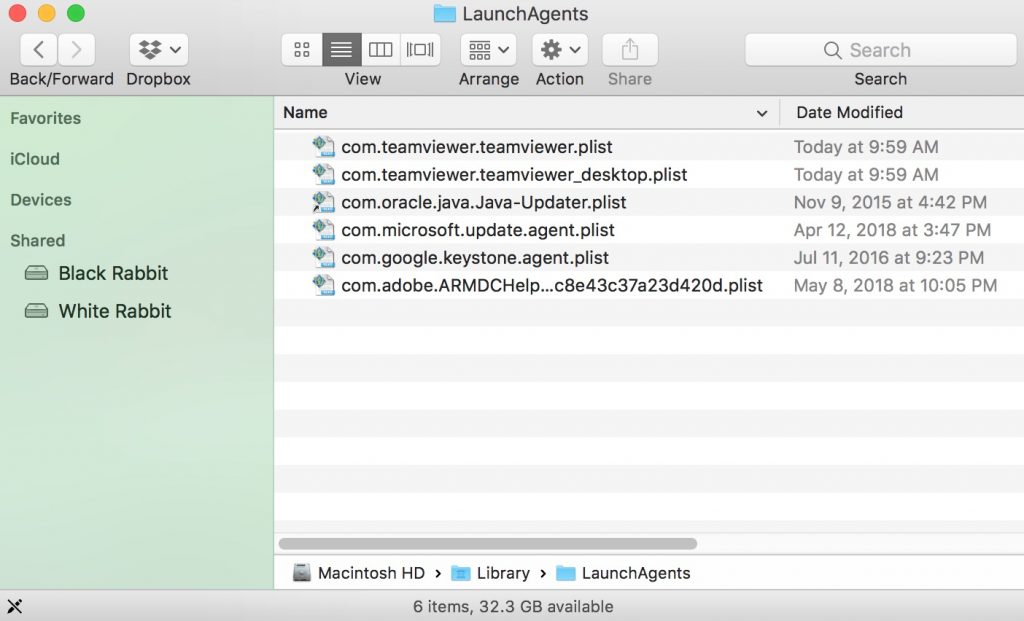
You can repeat the same procedure with the following other Library directories:
→ ~/Library/LaunchAgents
/Library/LaunchDaemons
Tip: ~ is there on purpose, because it leads to more LaunchAgents.
Step 3: Remove OperativeProgram Adware – related extensions from Safari / Chrome / Firefox
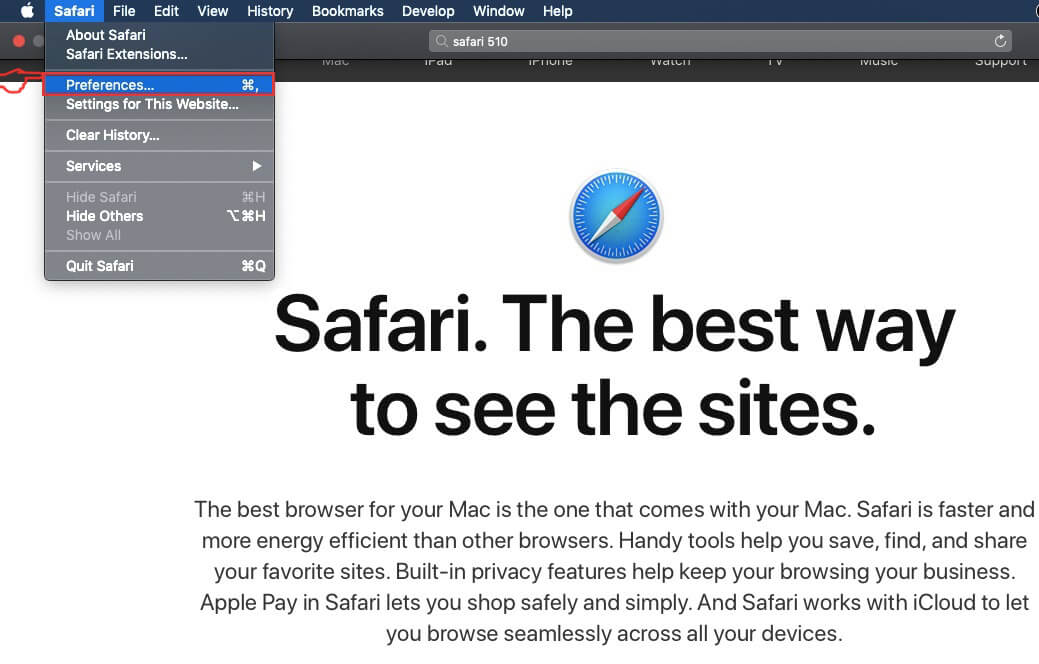

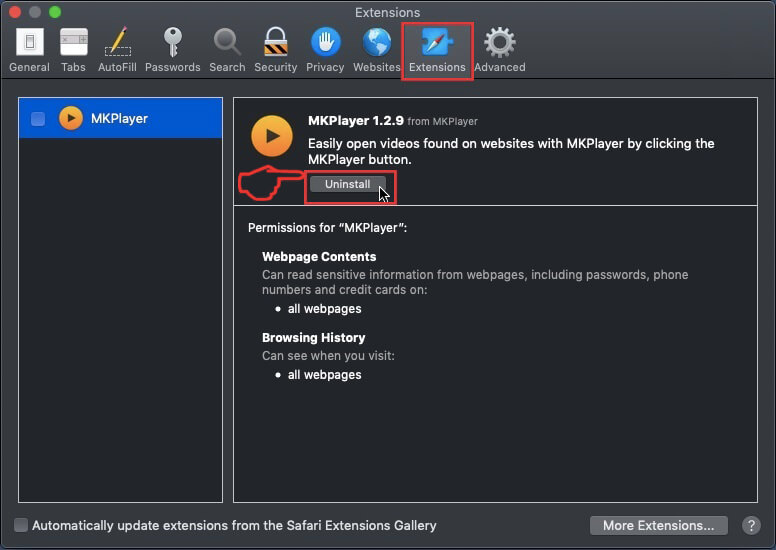
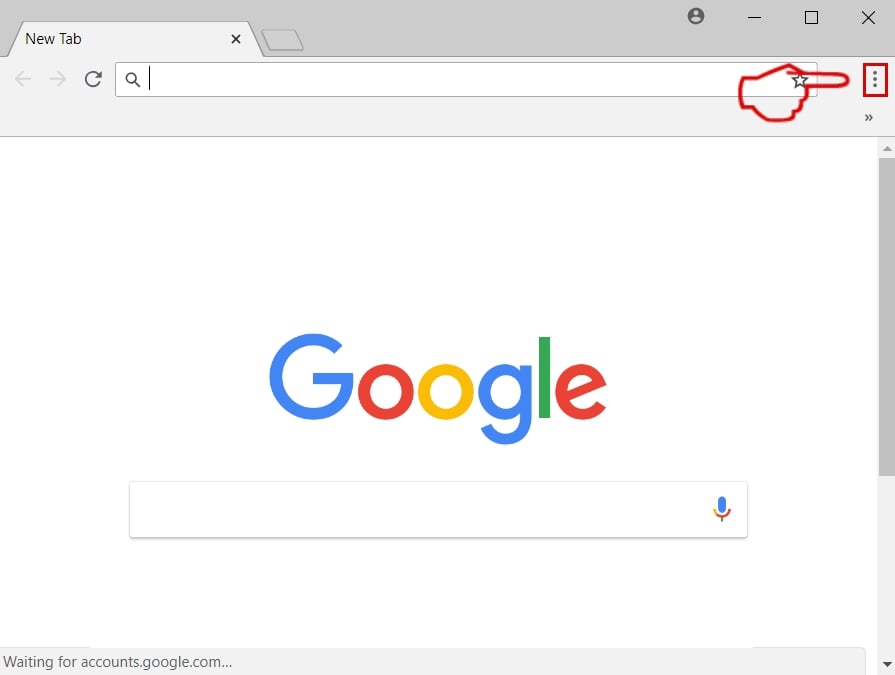
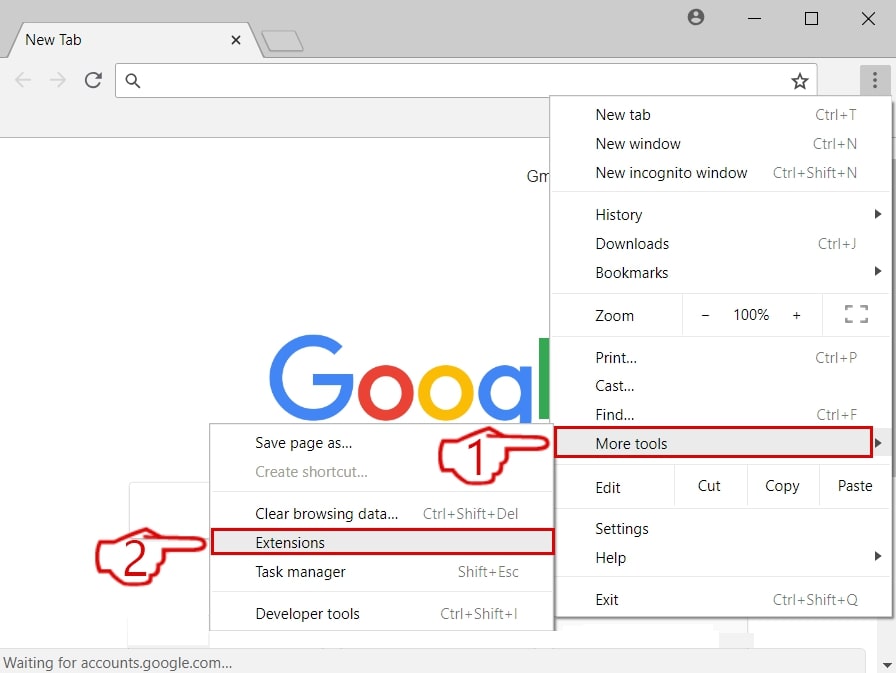
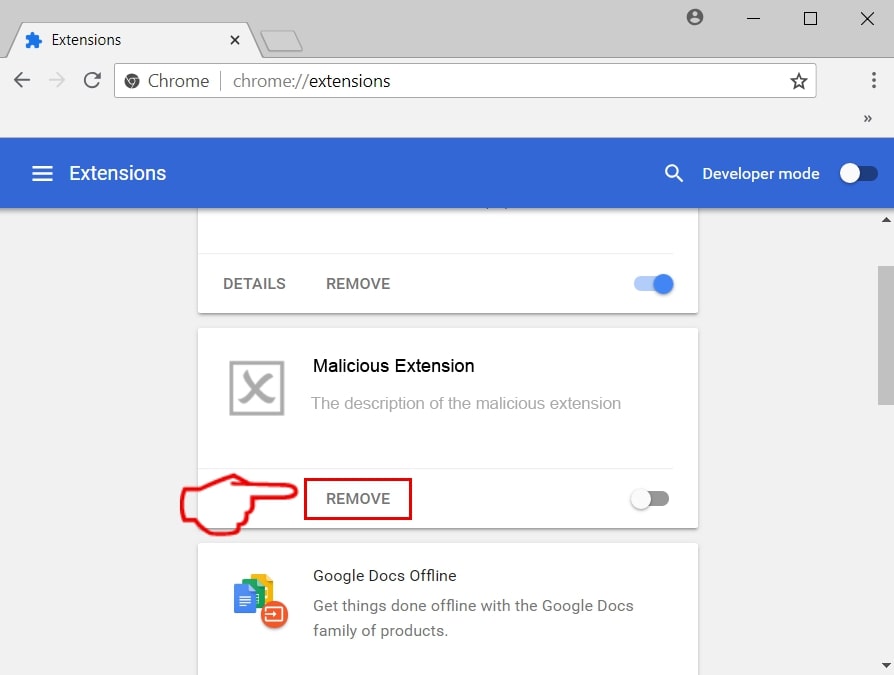
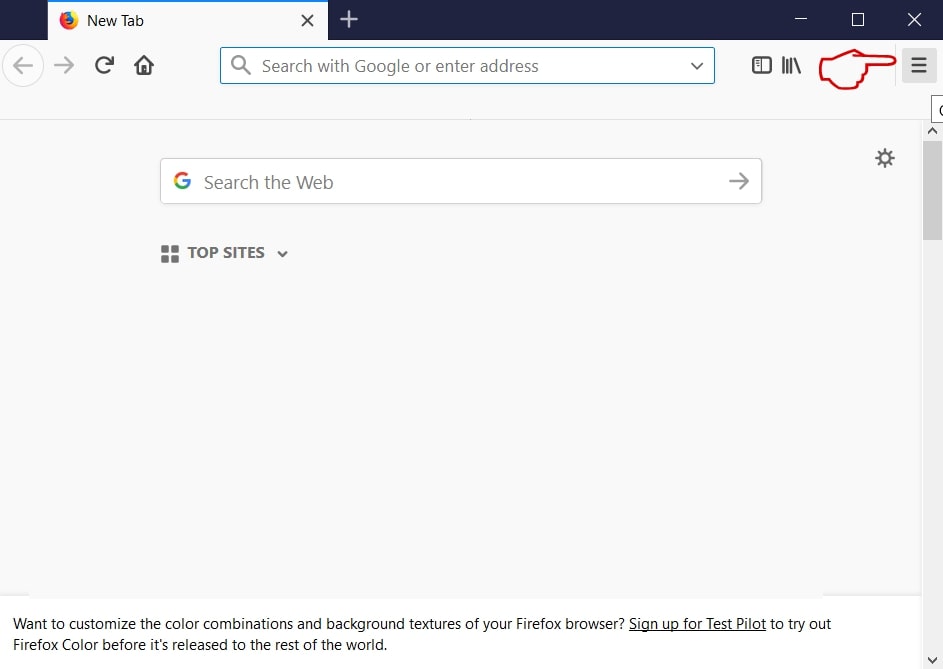
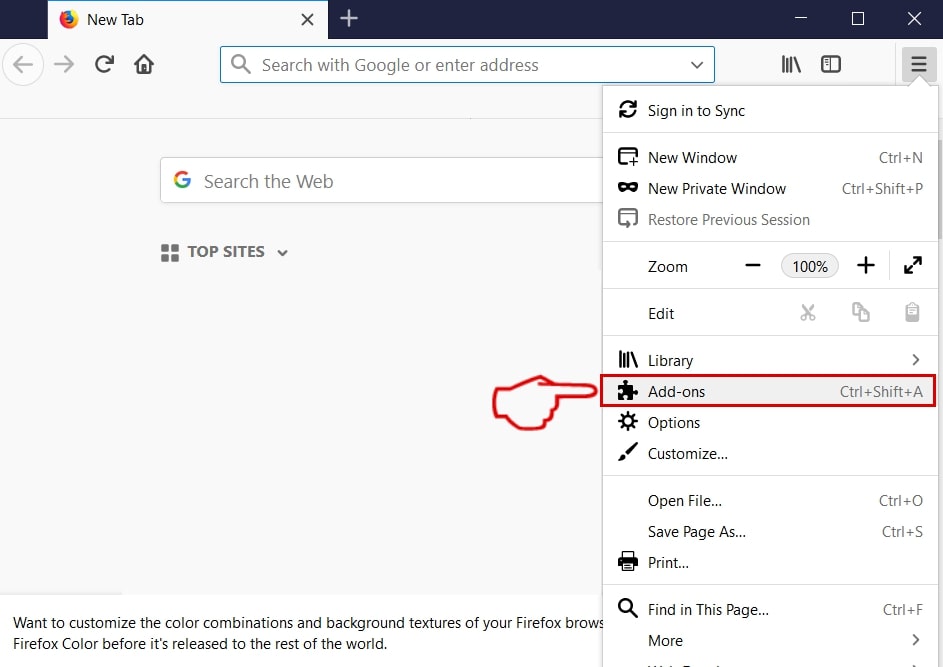
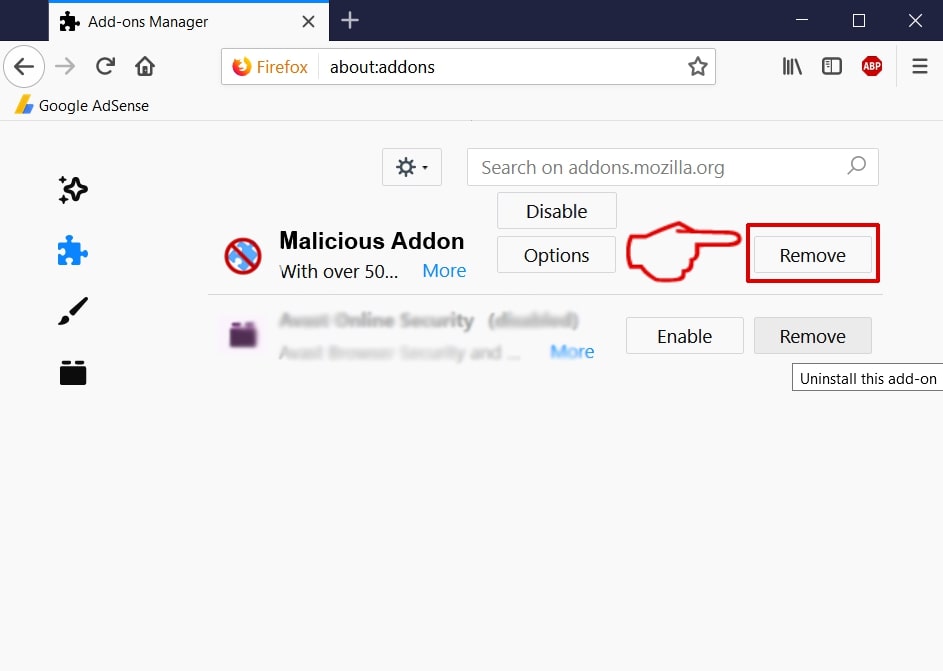
OperativeProgram Adware-FAQ
What is OperativeProgram Adware on your Mac?
The OperativeProgram Adware threat is probably a potentially unwanted app. There is also a chance it could be related to Mac malware. If so, such apps tend to slow your Mac down significantly and display advertisements. They could also use cookies and other trackers to obtain browsing information from the installed web browsers on your Mac.
Can Macs Get Viruses?
Yes. As much as any other device, Apple computers do get malware. Apple devices may not be a frequent target by malware authors, but rest assured that almost all of the Apple devices can become infected with a threat.
What Types of Mac Threats Are There?
According to most malware researchers and cyber-security experts, the types of threats that can currently infect your Mac can be rogue antivirus programs, adware or hijackers (PUPs), Trojan horses, ransomware and crypto-miner malware.
What To Do If I Have a Mac Virus, Like OperativeProgram Adware?
Do not panic! You can easily get rid of most Mac threats by firstly isolating them and then removing them. One recommended way to do that is by using a reputable malware removal software that can take care of the removal automatically for you.
There are many Mac anti-malware apps out there that you can choose from. SpyHunter for Mac is one of the reccomended Mac anti-malware apps, that can scan for free and detect any viruses. This saves time for manual removal that you would otherwise have to do.
How to Secure My Data from OperativeProgram Adware?
With few simple actions. First and foremost, it is imperative that you follow these steps:
Step 1: Find a safe computer and connect it to another network, not the one that your Mac was infected in.
Step 2: Change all of your passwords, starting from your e-mail passwords.
Step 3: Enable two-factor authentication for protection of your important accounts.
Step 4: Call your bank to change your credit card details (secret code, etc.) if you have saved your credit card for online shopping or have done online activiites with your card.
Step 5: Make sure to call your ISP (Internet provider or carrier) and ask them to change your IP address.
Step 6: Change your Wi-Fi password.
Step 7: (Optional): Make sure to scan all of the devices connected to your network for viruses and repeat these steps for them if they are affected.
Step 8: Install anti-malware software with real-time protection on every device you have.
Step 9: Try not to download software from sites you know nothing about and stay away from low-reputation websites in general.
If you follow these reccomendations, your network and Apple devices will become significantly more safe against any threats or information invasive software and be virus free and protected in the future too.
More tips you can find on our MacOS Virus section, where you can also ask any questions and comment about your Mac problems.
About the OperativeProgram Adware Research
The content we publish on SensorsTechForum.com, this OperativeProgram Adware how-to removal guide included, is the outcome of extensive research, hard work and our team’s devotion to help you remove the specific macOS issue.
How did we conduct the research on OperativeProgram Adware?
Please note that our research is based on an independent investigation. We are in contact with independent security researchers, thanks to which we receive daily updates on the latest malware definitions, including the various types of Mac threats, especially adware and potentially unwanted apps (PUAs).
Furthermore, the research behind the OperativeProgram Adware threat is backed with VirusTotal.
To better understand the threat posed by Mac malware, please refer to the following articles which provide knowledgeable details.


